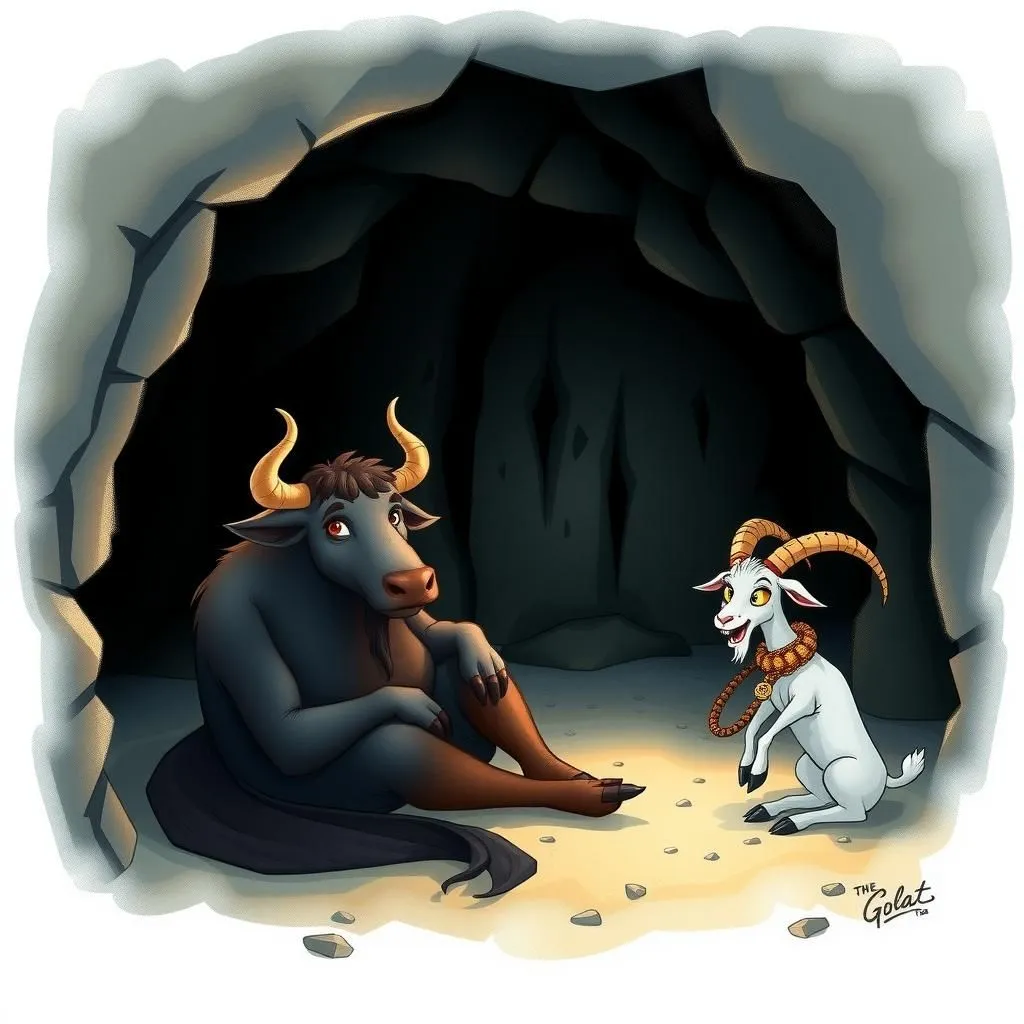
The Bull and the Goat
In "The Bull and the Goat," a thought-provoking moral story, a Bull seeking refuge from a Lion is unexpectedly attacked by a He-Goat in a cave. The Bull calmly asserts that his true fear lies with the Lion, not the Goat, illustrating the moral lesson about the evil disposition of those who take advantage of a friend in distress. This meaningful story with moral highlights the importance of recognizing true threats and the nature of malicious behavior.


